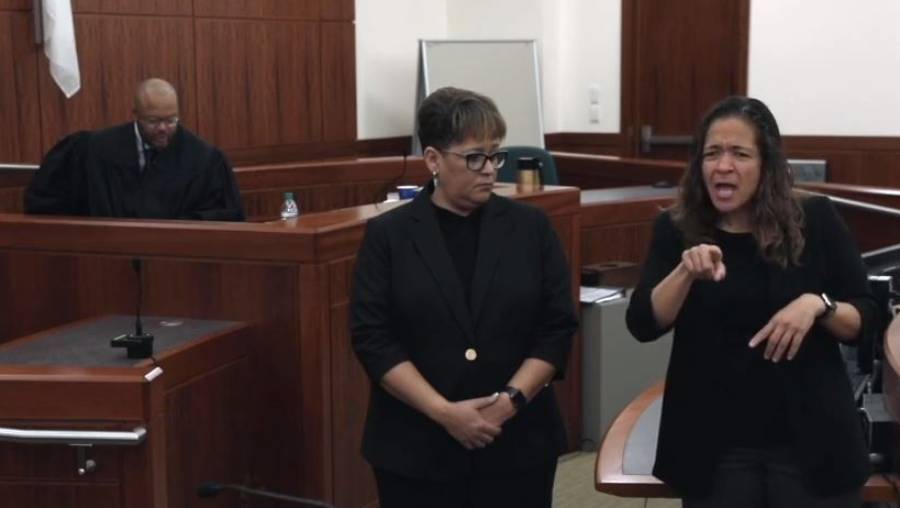About the Legal Interpreter

Highly qualified interpreters are needed to work in legal settings—particularly in court and law enforcement proceedings where matters involving high-risk and personal freedoms are often the focus. According to several needs assessments conducted by the NCIEC (2007; 2010), there is a shortage of qualified interpreters to work in legal settings. Therefore, one of the goals of the Prroject CLIMB is to promote the training and certification of interpreters in this area of specialization.
Working in the legal setting requires advanced interpreting competence—including the ability to fluently execute consecutive and simultaneous interpreting of complex texts, work effectively in teams—particularly the ability to work collaboratively with Deaf Interpreters (DIs), and to adapt language use to a wide range of sign language users. Further, it requires an in depth understanding of law enforcement and the legal system.
There are unique parameters impacting the work of interpreters in this setting that are the result of case law, legal and evidentiary procedures. Typically, the knowledge and skills required of interpreters to work in this setting are acquired after completion of a solid academic foundation in interpreting, coupled with multiple years of practice, followed by specialized training in legal interpreting and supervised field experience.
Certification of interpreters in this area of specialization is administered by the Registry of Interpreters for the Deaf, and requires that one possess generalist certification, and completion of a set number of hours of training and supervised work experience prior to application. The certification process involves a stringent written and performance exam. More information about the Special Certificate: Legal can be found at the RID website.



